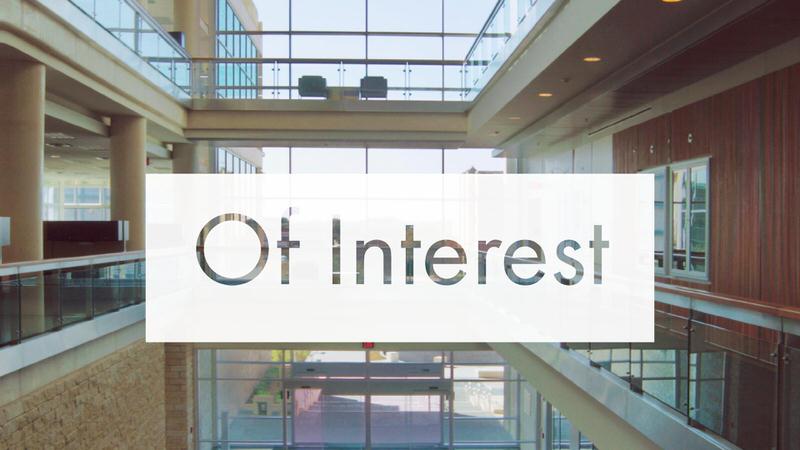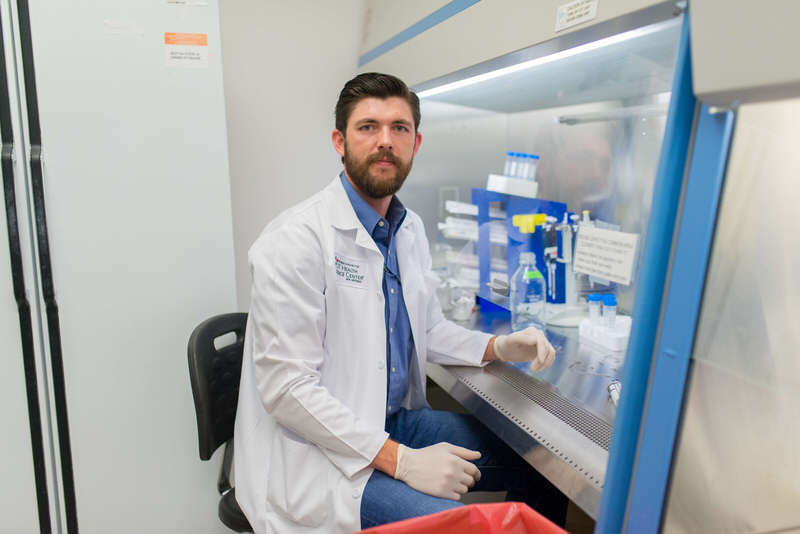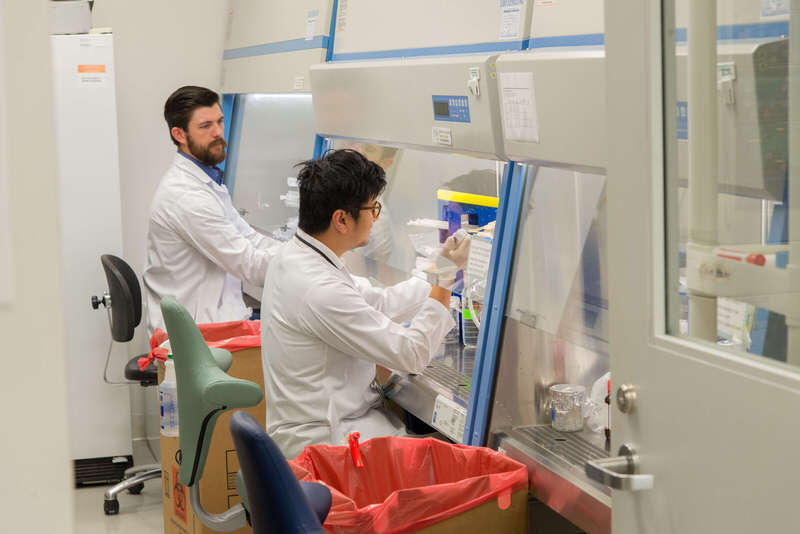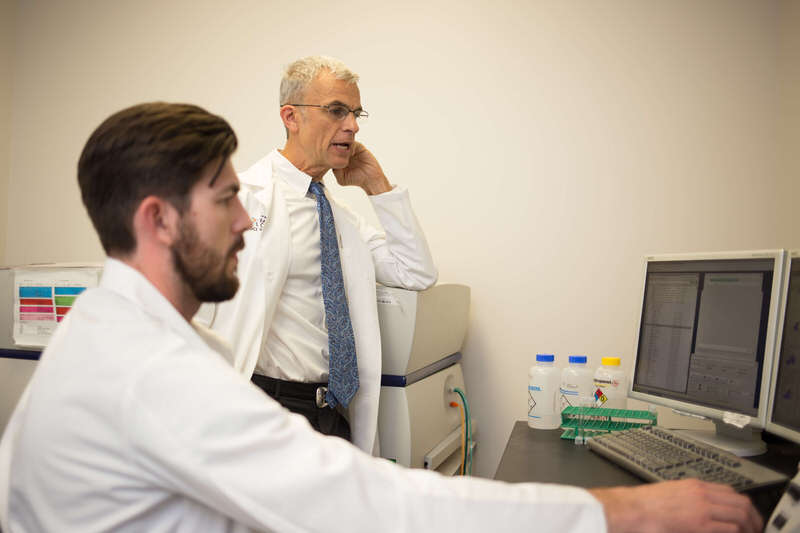M.D./Ph.D. Student Curtis Clark to Give Podium Presentation at Immunology 2018

 M.D./ Ph.D. student Curtis Clark will be giving a podium presentation at the American Association of Immunologists’ annual meeting in May.
M.D./ Ph.D. student Curtis Clark will be giving a podium presentation at the American Association of Immunologists’ annual meeting in May.
“The Immunology 2018 conference is the world’s leading all-immunology event featuring the most prominent researchers in the field of immunology on the planet,” Clark explained. “For me, the most exciting part of attending and presenting at a meeting as prolific as AAI is the prospect of integrating immunology research into clinical practice – in the case of our efforts, striving to unearth novel immunologic strategies to fight cancer.”
At the conference, Clark will be presenting research findings from his dissertation project in the lab of Dr. Tyler Curiel, focused on cancer immunotherapy and the role of an important molecule called PD-L1. PD-L1 is a protein that allows some cancer cells to escape immunologic attack by inhibiting immune cells called T lymphocytes. Drugs blocking tumor PD-L1 and its receptor on T cells called PD-1 have been approved by the Food and Drug Administration for many cancers, and are in clinical testing for several other cancer types.

The title of his podium presentation at AAI is “Cell-intrinsic and spatially divergent tumor programmed death ligand 1 (PD-L1) signals modify local and systemic anti-tumor immunity through novel chemokine effects.”
“We discovered that cancer cells, by expressing PD-L1 and its receptor, PD-1, can further disrupt the immune system by turning off production of molecules called chemokines that recruit anti-cancer immune cells. By blocking tumor PD-L1, we demonstrated that chemokine signaling can be restored and allow the immune system to respond to and kill cancer cells,” Clark said. “In addition, these studies have identified unique chemokine pathways as targets for treating tumors that were previously unresponsive to anti-PD-L1 therapies.”
Clark and other members of Dr. Curiel’s lab have already published research related to this project in the scientific journals Cancer Research, and Autophagy, and they will submit these findings for publication this year.
“Receiving the tremendous honor to present our work at these conferences, and research in general, is truly a team sport – it does not escape me that this opportunity is the result of the vision and commitment to excellence of my Ph.D. mentor as well as all of the hard-work and s
upportive efforts of our top-notch lab team and collaborators,” Clark said.
Clark is excited to go to the conference where he plans to meet other scientists in the field of cancer immunotherapy.
“I am always eager to learn about the latest developments in immunology research in general, seeing the groundwork for and advancement of strategies that may revolutionize medicine in years to come,” he said.
After finishing medical school, Clark plans to carry on clinical training in oncology dedicated to advancing cancer care, and become a physician-scientist committed to continuing cancer research aimed at harnessing novel strategies to uncap the vast potential of the immune system.
